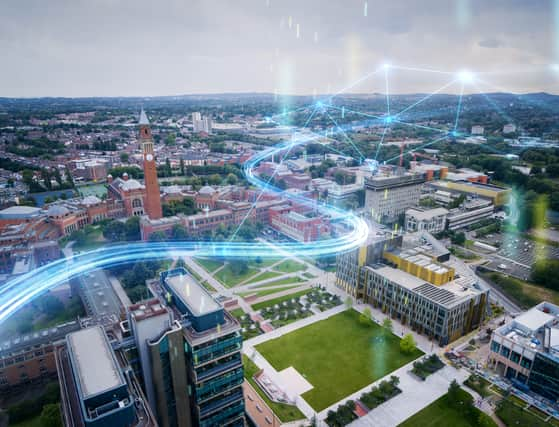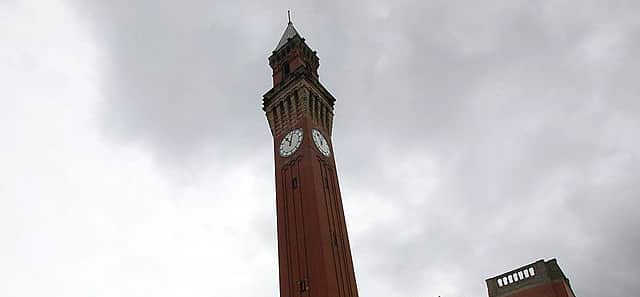University of Birmingham partners with Siemens to create the smartest campus in the world


The University of Birmingham has set out ambitious plans to create the world’s smartest global campus which will ‘create new research and innovation opportunities, whilst significantly reducing our carbon footprint’.
Working with the automation company Siemens, the University will combine digital sensor and analytics technologies, artificial intelligence, decentralised energy generation and storage, renewable energy and concepts that help change users’ behaviour as it seeks to transform its Edgbaston and Dubai campuses into the world’s smartest globally.
How will the project work?
Advertisement
Hide AdAdvertisement
Hide AdA ‘Living Lab’ will capture data from the University’s building technologies, estates infrastructure and energy plants and use it for innovation, R&D activities, as well as teaching.
Scrutinising energy demand and production - from systems to individual prosumers (consumers and producers) - with live data from across the sites provides a unique opportunity for applied learning for students and creates a platform for cutting-edge research.
Siemens will sponsor a team of PhD studentships at the University of Birmingham based in the UK and Dubai. Their research projects will be co-designed by Siemens and the University to address important challenges in data, technology, urban systems and the NetZero goal.
This year, the University of Birmingham will become the first university in the world to roll out Internet of Things (IoT) technology at scale.
Advertisement
Hide AdAdvertisement
Hide AdStarting in Autumn 2021, the first phase of this major energy efficiency project will include the roll out of 23,000 Enlighted IoT sensors across the University estate.


‘Plans to deliver the campus of the future’
Professor Tim Jones, Provost and Vice-Principal of the University of Birmingham, explains the University’s ambitious vision: “Our goal is to deliver the campus of the future, using cutting-edge technologies to make our campuses in Edgbaston and Dubai the smartest globally.
“This will enhance our student experience, create new research and innovation opportunities, whilst significantly reducing our carbon footprint. As we approach COP26 in Glasgow this autumn, it is clear we are into the ‘decade of delivery’ for NetZero targets. University-Industry strategic partnerships, such as ours with Siemens, are important for helping to identify pathways for turning targets into reality.”
“As one of the largest universities in the UK – with a global community of more than 38,000 students – the university is already an energy prosumer and these technologies will be further optimized in the system we are now working on together,” said Matthias Rebellius, managing board member of Siemens AG and CEO of Smart Infrastructure.
Advertisement
Hide AdAdvertisement
Hide Ad“Partnerships like this are extremely important for gathering new insights, testing and developing new technologies and creating efficient and sustainable energy infrastructure. The University’s campus in Dubai will be a global example of sustainability at the rescheduled Dubai Expo 2020.”
Carl Ennis, CEO Siemens, GB & Ireland said: “We are excited to be working with the University of Birmingham on this project and confident that together we can develop a clear pathway to the University becoming a smart campus and net zero.
“Our goal is to apply the University’s strategic vision to their campus. We will uncover where carbon savings are possible by managing resources more efficiently, in a system that is adaptable to changing demand. All of this can be achieved with a combination of connected digital technologies, artificial intelligence, decentralised energy generation and storage, renewable energy and ideas that help change users’ behaviour.”
In addition, Siemens will deliver a 10-year bureau for Energy and IoT services to ensure that the University reaps the full potential of both the technology and industry expertise.
Advertisement
Hide AdAdvertisement
Hide AdEarlier this year, the University of Birmingham signed up to the United Nations Global Compact – the world’s largest corporate responsibility initiative – as part of its commitment to reducing its environmental footprint and maximising the impact of its research.
Comment Guidelines
National World encourages reader discussion on our stories. User feedback, insights and back-and-forth exchanges add a rich layer of context to reporting. Please review our Community Guidelines before commenting.
